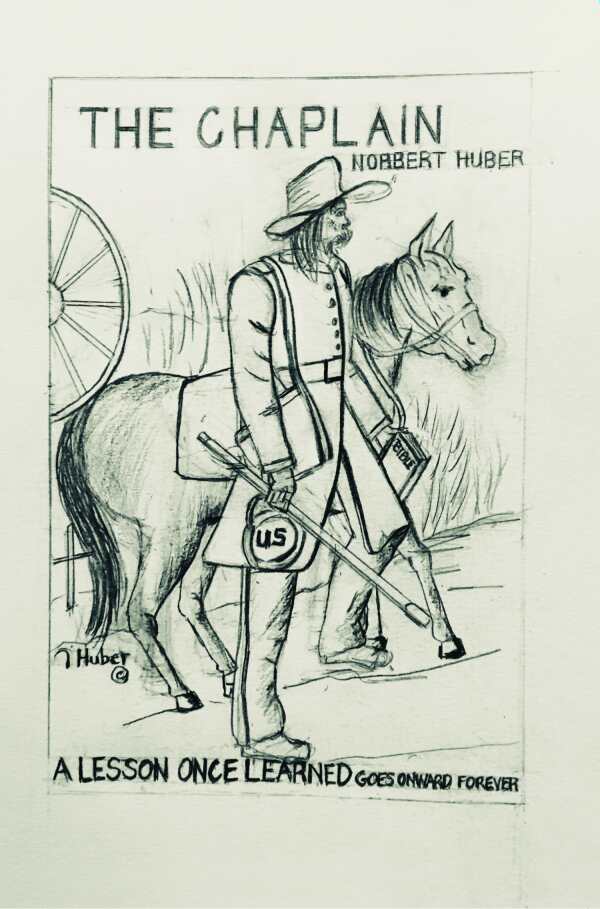The Chaplain
A Lesson Once Learned Goes Onward Forever
In the historical novel The Chaplain, a man moves from seminary to shepherding his own congregation, always maintaining his sense of faith.
In Norbert Huber’s historical novel The Chaplain, a Civil War minister refuses to choose sides.
Karl is in seminary in Gettysburg, Pennsylvania, when he is called to service as a wartime chaplain. Karl, a Lutheran, has no allegiance to either side; he ministers to both Confederate and Union soldiers, kneeling “alongside many young men who were casualties of the battlefield. There were so many in this condition that he wore holes in the knees of his trousers.”
After the war, Karl establishes his own congregation in Rock Port and meets Jacob; the two are survivors of a horrific accident that claimed the lives of many of their community. Focusing on the life of Karl’s congregation, the story asks whether true neutrality is possible, and whether social agnosticism is an important part of faithful life.
This pastoral fantasy builds itself up from historical facts. Its granular descriptions of Karl’s church life include matter-of-fact details about horse manure, soap, and meals; its grisly battlefield scenes feature the mangled bodies of dying soldiers. In this way, the book comes to encompass both the serene and the violent aspects of life in the Civil War era.
Though Karl is the central character, the book diverges from his story line many times to include vignettes focused on the supporting cast, including Jacob; Samuel, a Confederate soldier; and Caleb, the church sexton. These characters pass through the story, lingering just long enough to make an impression on Karl; they are lively and interesting, and their sometimes sudden departures are disappointing.
Although Karl is the single consistent character in the novel, he is opaque and flat compared to others. Karl is devoted to his calling, but exhibits less agency than the people around him. His early commitment to helping all people exposes him to strangers from different walks of life, but does not impact him in terms of personal growth. He leaves each interaction with a sense of having fulfilled his destiny, but in spite of the injustice and tragedy he witnesses, he never questions the nature of God. Though he is affected by others’ suffering, his own suffering is revealed in a secondhand fashion; even when he loses the people he loves most, he is quick to find consolation in his spirituality. The novel samples liberally from the Bible, using quotations to center itself and turn Karl’s life into a parable for devotion.
In the historical novel The Chaplain, a man moves from seminary to shepherding his own congregation, always maintaining his sense of faith.
Reviewed by
Claire Foster
Disclosure: This article is not an endorsement, but a review. The publisher of this book provided free copies of the book and paid a small fee to have their book reviewed by a professional reviewer. Foreword Reviews and Clarion Reviews make no guarantee that the publisher will receive a positive review. Foreword Magazine, Inc. is disclosing this in accordance with the Federal Trade Commission’s 16 CFR, Part 255.

